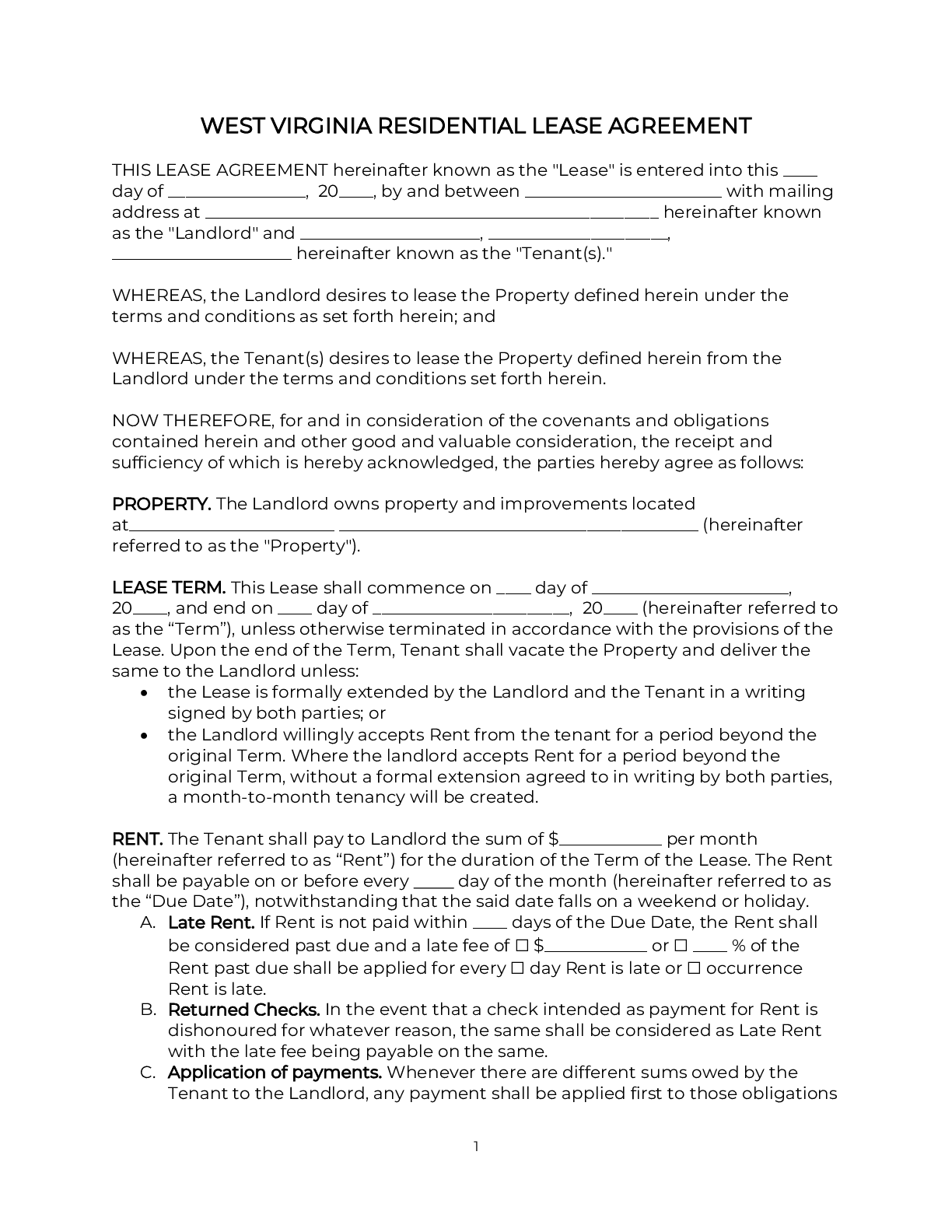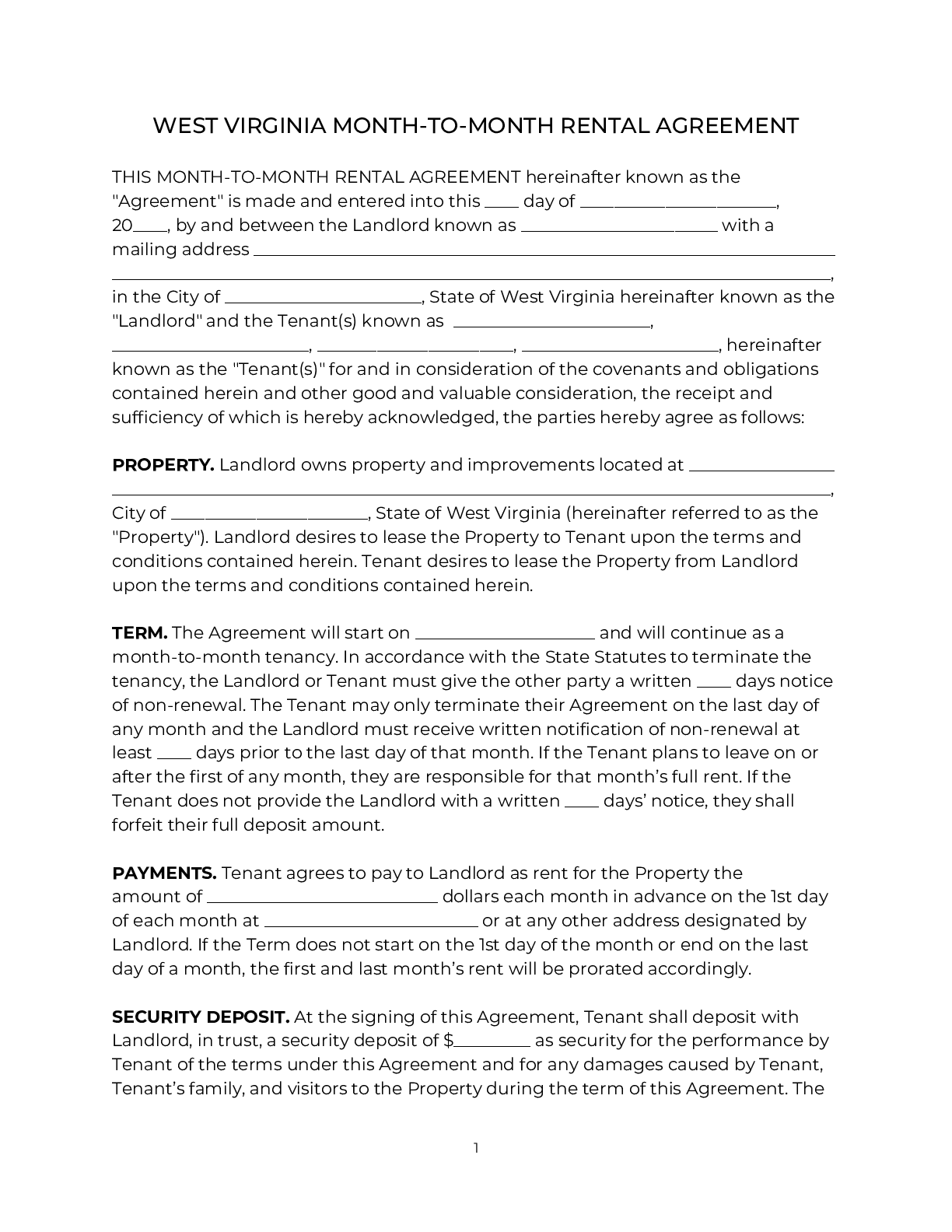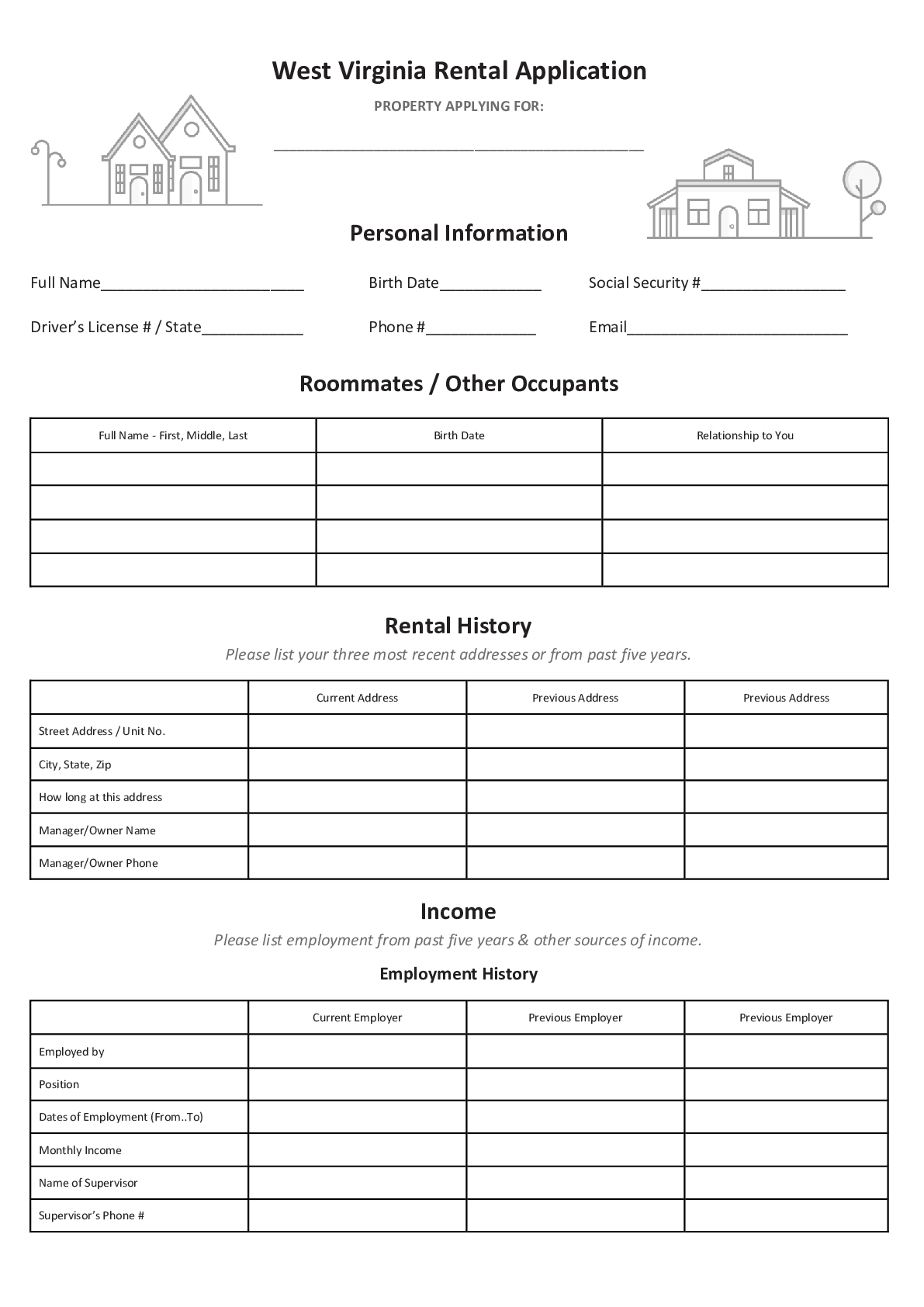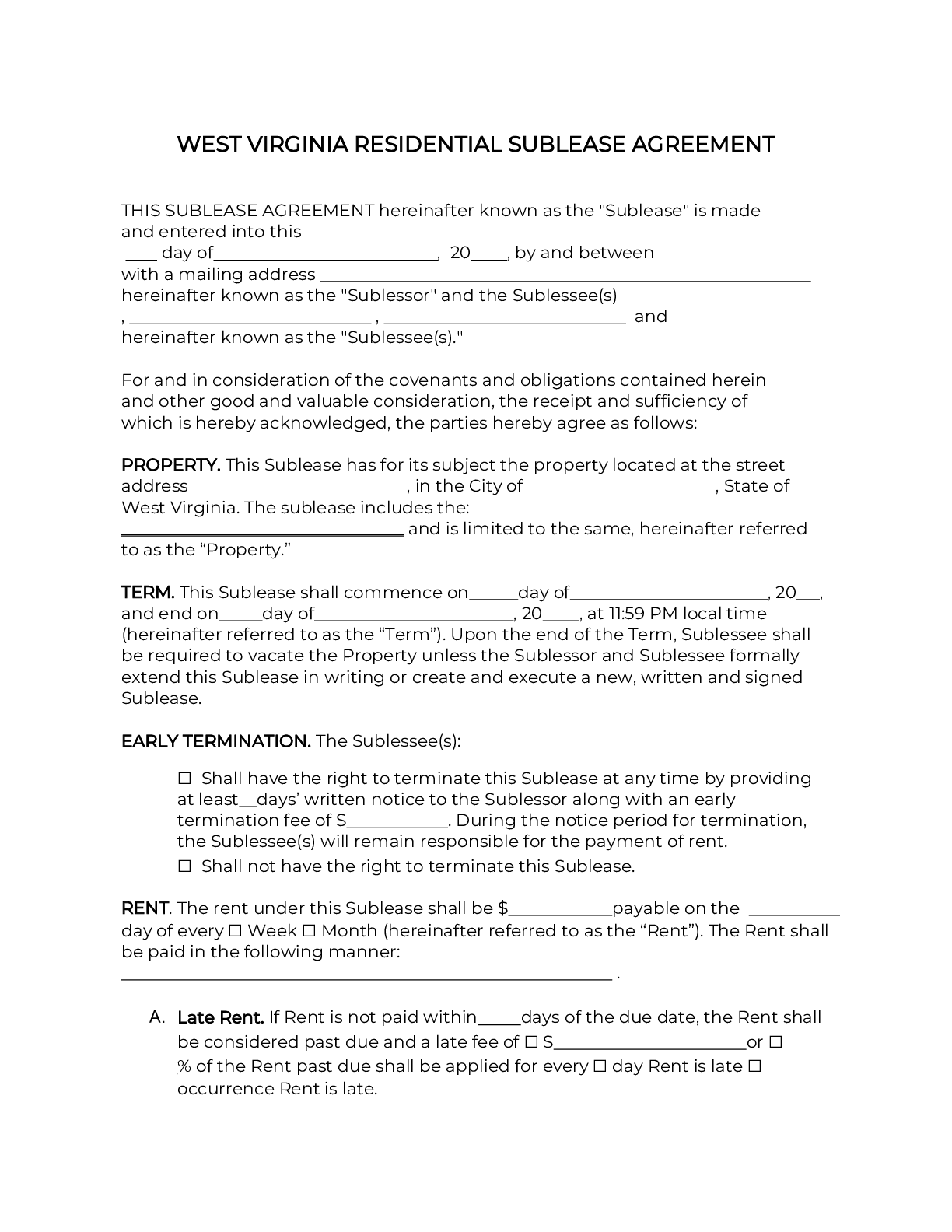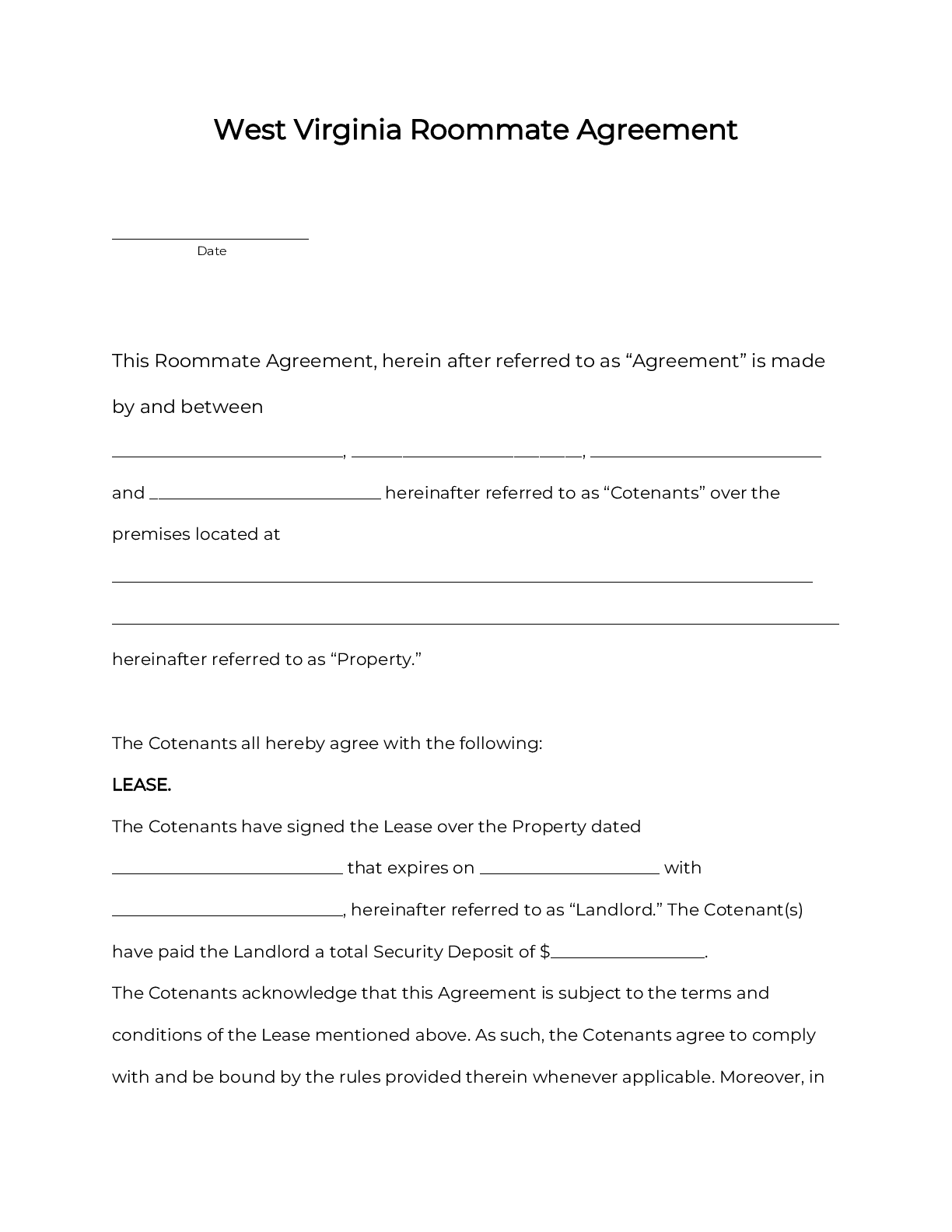A West Virginia rental agreement is a legal contract between a landlord overseeing a rental property and a tenant using the property. Delaware landlord-tenant law governs and regulates these agreements.
West Virginia Rental Agreement Types
A West Virginia roommate agreement is a legal contract between two or more people (“co-tenants”) who share a rental property according to rules they set, including for things like splitting the rent. This agreement binds the co-tenants living together, and doesn’t include the landlord.
West Virginia Required Residential Lease Disclosures
- Lead-Based Paint Disclosure (required for some leases) – Landlords must provide an EPA-approved disclosure and informational pamphlet to tenants renting any property built before 1978.
To learn more about required disclosures in West Virginia, click here.
West Virginia Landlord Tenant Laws
- Warranty of Habitability – West Virginia landlords can only rent out habitable property. This means providing certain basic health and safety features like heat, plumbing, and electricity. Landlords must repair any issues within a reasonable time. Failure to repair lets the tenant end the lease and/or sue the landlord. West Virginia doesn’t let tenants repair and deduct, or withhold rent.
- Evictions – West Virginia landlords may evict tenants for a number of reasons including nonpayment of rent, lease violations, or illegal acts. Depending on the type of eviction, a landlord might have to serve the tenant with a particular notice to quit. In West Virginia, evictions usually take 1-3 months.
- Security Deposits – West Virginia law does not limit the amount of a security deposit. When a lease ends, the landlord must return any unused portion of a tenant’s deposit within 60 days (45 days, if a new tenant moves in immediately).
- Lease Termination – West Virginia tenants may end a month-to-month lease with one month of advance notice. Terminating a fixed-term lease early usually requires landlord harassment, unit uninhabitability, domestic abuse, or active military duty.
- Rent Increases and Fees – West Virginia does not limit the amount or timing of a rent increase. There is likewise no cap on late fees. Returned check fees have a $25 limit.
- Landlord Entry – West Virginia landlords have the right to enter rental property at reasonable times, for reasonable business purposes like repairs and inspections. Except in emergencies, they must give reasonable advance notice (by custom at least 24 hours).
- Settling Legal Disputes – West Virginia lets small claims courts hear landlord-tenant disputes, as long as the amount in controversy is under $10,000. Since these are magistrate courts, they typically can only resolve disputes related to money. Eviction isn’t usually available in small claims.
To learn more about landlord tenant laws in West Virginia, click here.
Sources
- 1 W. Va. Code § 61-3-39e
-
The payee or holder of a check, draft or order which has been dishonored because of insufficient funds or credit may send notice thereof to the drawer of the check, draft or order. The payee or holder of any dishonored check may impose a fee of up to twenty-five dollars a worthless check. This fee may not be imposed or collected after a complaint for warrant has been delivered to magistrate court. No payee or holder of a check, draft or order which has been dishonored because of insufficient funds or credit shall incur any civil or criminal liability for the sending of a notice substantially in the form provided herein, other provisions of law notwithstanding. The form of the notice shall be substantially as follows:
“You are hereby notified that a check, number ………………, issued by you on (date of check), drawn upon (name of bank), and payable to …………………………., has been dishonored. Pursuant to West Virginia law, you have ten days from the date of this notice to tender payment of the full amount of the check plus a fee of $………………… (not to exceed twenty-five dollars a worthless check) to the undersigned at ……………………… You are further notified that in the event the above amount is timely paid in full you will not be subject to legal proceedings, civil or criminal.
Dated ………………….., 20….
…………………………….
The provisions of this section do not authorize the making of any other written or oral threats of prosecution to enforce or enhance the collection or honoring of the dishonored check, draft or order.
The holder or payee of any check, draft or order shall relinquish the check, draft or order to the maker upon tender of the full amount due at any time before a complaint for warrant has been presented to magistrate court. In the event complaint for warrant has been presented to magistrate court, payment may be made only through the court and any holder or payee unlawfully accepting payment after that time shall be liable for all costs which may be imposed by the magistrate court in the matter, including all costs which may have accrued by the time the magistrate court is notified of the payment.
Source Link




